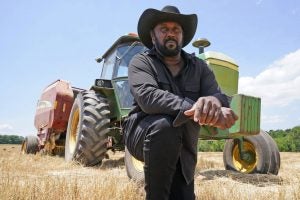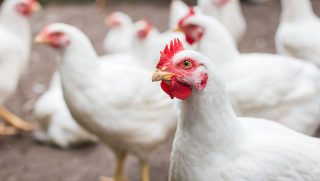At the beginning of every new year, many students across the nation steadily gear up for what is the culmination of their last spring semester in secondary education. As they simmer on their futures, I often look out over my classroom of mixed grade, ethnicity, and cultures and ponder what they must be thinking about life after K-12 education.
I understand that these paths toward success look different for every student. However, to attain success, I am always curious about my students’ access to resources, mentorship, and financial aid; ripping down the barriers that they may soon face as maturing, young adults.
On a national recorded average, more than 38 percent of students attending four-year universities are Black, Indigenous, People of Color (BIPOC), 44 percent of students attending two-year institutions are BIPOC, and 42 percent of students attending American Trade School Programs are male BIPOC students. With such high post-secondary numbers, our hope as educators is to increase the number of students in higher education, especially in trades and agriculture, to funnel students who we do not commonly see in those educational spaces and pursued occupations to be voices for their communities in those spaces; ever influencing our growing world and its demographics of diverse populations.
To accomplish this, I want to refer to what I discussed earlier. Access. At Title 1 schools such as the one I work at in South Sacramento, we do a fair job of sharing with students what options they have outside of high school. We funnel students down career pipelines from their first year in high school. Students choose a Career Technical Pathway from a palate of options, and we as educators mold them and instill in them career readiness tools to take on, hopefully, a career or major in the content we share with students in our classrooms.
Access, however, is more than information. Access is also mentorship; a guide that has been through an experience and can provide wisdom to another. Access is also financial support; a key to unlocking our futures without having to worry about back breaking debt because of following dreams and passions.
As application season starts to end, there are still opportunities for BIPOC students in agriculture education and/or pursuing agriculture as a career to grasp continued access. Through various mentorship programs and support, BIPOC students in agriculture have access to a plethora of scholarships that aid in relieving financial burden.
USDA 1890 National Scholars Program
Established in 1992, the U.S. Department of Agriculture’s 1890 National Scholars Program aims to support students from rural and underserved communities around the country pursuing the agriculture, food, and other related sciences as their future career industry.
Over 2023, the USDA has awarded 100 scholarships to students attending 19 land-grant universities across the nation. The scholarship also includes opportunities for students to attain work experiences with the USDA, whether through extension, government, or other opportunities potentially related to their chosen career pathway in agriculture.
The scholarship is open from December 15 through March 1, 2024. To receive updates on scholarship deadlines and instructions on how to submit an application, review the USDA’s 1890 National Scholars Program website.
Cynthia Hayes Memorial Scholarship
Sponsored by the Southeastern African American Farmers’ Organic Network (SAAFON), the Sustainable Agriculture Coalition (NSAC), and the Minorities in Agriculture Natural Resources and Related Sciences (MANRRS), the Cynthia Hayes Scholarship honors the memory of an African American Organic Farmer, founding member of SAAFON, and developer of NSAC’s Equity Platform, Cynthia Hayes.
This scholarship is awarded each year to students who identify as BIPOC, are interested in grassroots organizing, movement building, or agricultural policy and a commitment to promoting racial equity in our food and farm systems.
Students must also be a member of MANRRS (either independent in through the MANRRS website or university affiliated). Students must also be enrolled in an undergraduate program, seeking a degree in agriculture.
To learn more about Cynthia Hayes’ legacy and how to apply please visit the National Sustainable Agriculture Coalition’s website. Applications are open April 3 and close May 12, 2024.

National Black Farmers Association Scholarship Program
Since 2015, the National Black Farmers Association (NBFA) has provided hundreds of thousands of dollars in scholarships to nearly one hundred BIPOC students in agriculture.
“Higher education provides essential tools, knowledge, and resources that will allow these scholars to continue their family farm legacy for future generations,” shares John Boyd, National Black Farmers Association (NBFA) president.
As of recent, they have changed their scholarships name to “Next Generation of Black and Hispanic Farmers Scholarship (NGBHF Program), providing awards who plan to enroll in the University of Nebraska-Lincoln, rather than leaving the scholarship opened ended in where the student attended as in previous years.
The goal with each year of student sponsorship is to lift up BIPOC students who are committed to farming on the family farm upon college graduation, continuing the generational wealth of BIPOC farmers in agriculture.
It is yet seen whether the National Black Farmers Association will post another scholarship, as 2022 was their last posting. With more need for BIPOC farmers, donors working alongside the organization might be what they need to offer more financial services to BIPOC students attending agriculture majors and careers.
To learn more about the scholarship and to reach out to the National Black Farmers Association for more information on possible financial support of students entering higher education or trades, visit their website.
Thurgood Marshall College Fund
The Thurgood Marshall College Fund (TMCF), deemed “Where Education Pays Off,” offers a plethora of scholarships to students each year who are pursuing agriculture as a career.
The Thurgood Marshall fund specifically targets hundreds of thousands of diverse talents each year for companies who wish to diversify their employees, interns, and scholarship recipients. The fund has awarded $24 million to students pursuing a wide variety of careers, especially those in agriculture and other career readiness pathways.
Agriculture companies and those associated have partnered with the fund include CoBank, Bass Pro Shops, the Coca-Cola Foundation, Conagra, and Ford.
To learn more about their fund, please check out Thurgood Marshall College Fund website and explore the current scholarships offered in 2024-2025.
Bre Holbert is a past National FFA President and studied agriculture science and education at California State-Chico. “Two ears to listen is better than one mouth to speak. Two ears allow us to affirm more people, rather than letting our mouth loose to damage people’s story by speaking on behalf of others.”



